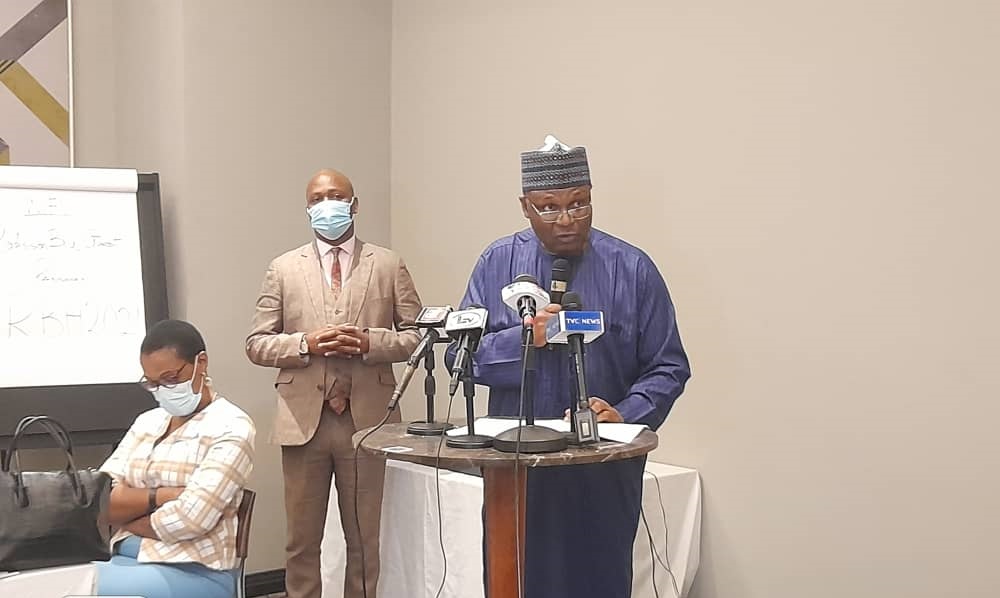The Independent National Electoral Commission (INEC) at a consultative forum with the Guild of Corporate Online Publishers (GOCOP) in Lagos on Wednesday, unveiled the burden of conducting elections in Nigeria.
The INEC Chairman, Prof. Mahmood Yakubu, at the interactive forum in Lagos, said that Nigeria’s size and population make it one of the biggest democracies in the world. Prof. Yakubu noted that Nigeria is certainly the second largest presidential democracy after the United States of America.
“The size of our voter population and elective institutions make elections in Nigeria a huge undertaking.
“This fact is better appreciated within our regional context. There are 15 countries in West Africa today, including Nigeria. “However, with the current voter population of over 84 million, Nigeria has about 11 million more registered voters than the other 14 countries put together which have 73.6 million registered voters.
“Conducting a general election in Nigeria is like holding an election in West Africa and beyond,” Yakubu declared.
Prof. Yakubu further said that the statutory responsibilities of INEC make the commission both an Election Management Body and Electoral Commission. He cited that Section 53 (f) of Part 1 to the Third Schedule the Constitution of the Federal Republic of Nigeria 1999 (as amended) requires the Commission to organize, undertake and supervise all elections to the offices of the President and Vice-president, the Governor and Deputy Governor of a state, and to the membership of the Senate, the House of Representatives, and the House of Assembly of each State of the Federation.
The INEC chairman said that in order to do so effectively, there are other extensive responsibilities undertaken by the Commission which include:
The registration and regulation of political parties, including the monitoring of party and campaign finance as well as their primaries, congresses, meetings, and conventions,
Nationwide continuous registration of voters and the maintenance of the national register of voters,
Prosecution of electoral offenders,
Creation of polling units,
Delimitation of electoral constituencies,
Voter education and publicity,
Management of electoral logistics,
Election security in consultation with the security agencies,
Strategic engagement with stakeholders,
Formulation of regulations and guidelines for the conduct of elections and electoral activities to give clarity to the provisions of the Constitution and Electoral Act; and
maintenance of extensive physical assets (offices, residential accommodation, and other facilities) nationwide.
Yakubu maintained that in addition, elections are held all-year round between one General Election and another with no respite.
“There is no election season any longer in Nigeria. The Commission has to think literally on its feet as it reflects, strategises, and innovates and pilots the new innovations.
“For instance, since the 2019 General Election, the Commission has conducted 36 elections made up of 5 Governorship constituencies (Anambra, Bayelsa, Edo, Kogi and Ondo), 6 Senatorial Districts, 7 Federal Constituencies (House of Representatives seats) and 18 State Assembly constituencies. “Yet, there are more elections to be conducted in the next 8 months. The Federal Capital Territory (FCT) Area Council elections made up of 68 constituencies (6 Council Chairmen and 62 Councilors) is scheduled to hold on 12th February 2022, followed by the Ekiti and Osun State Governorship elections holding on 18th June 2022 and 16th July 2022 respectively. There are also 3 pending Federal constituency bye-elections (Jos North/Bassa in Plateau State, Akure North/Akure South in Ondo State and Ogoja/Yala in Cross River State) and 3 State constituencies (Ekiti East I in Ekiti State, Shinkafi in Zamfara State and Akpabuyo in Cross River State),” Yakubu highlighted.
The INEC chairman emphasised that while the off-season governorship elections are known in advance, the bye-elections, mainly caused by the deaths of serving members of the National and State Assembly, are unpredictable.

 Football7 days ago
Football7 days ago
 Health & Fitness1 day ago
Health & Fitness1 day ago
 Featured5 days ago
Featured5 days ago
 Comments and Issues7 days ago
Comments and Issues7 days ago
 Education6 days ago
Education6 days ago
 Business6 days ago
Business6 days ago
 Education1 week ago
Education1 week ago
 Crime6 days ago
Crime6 days ago

